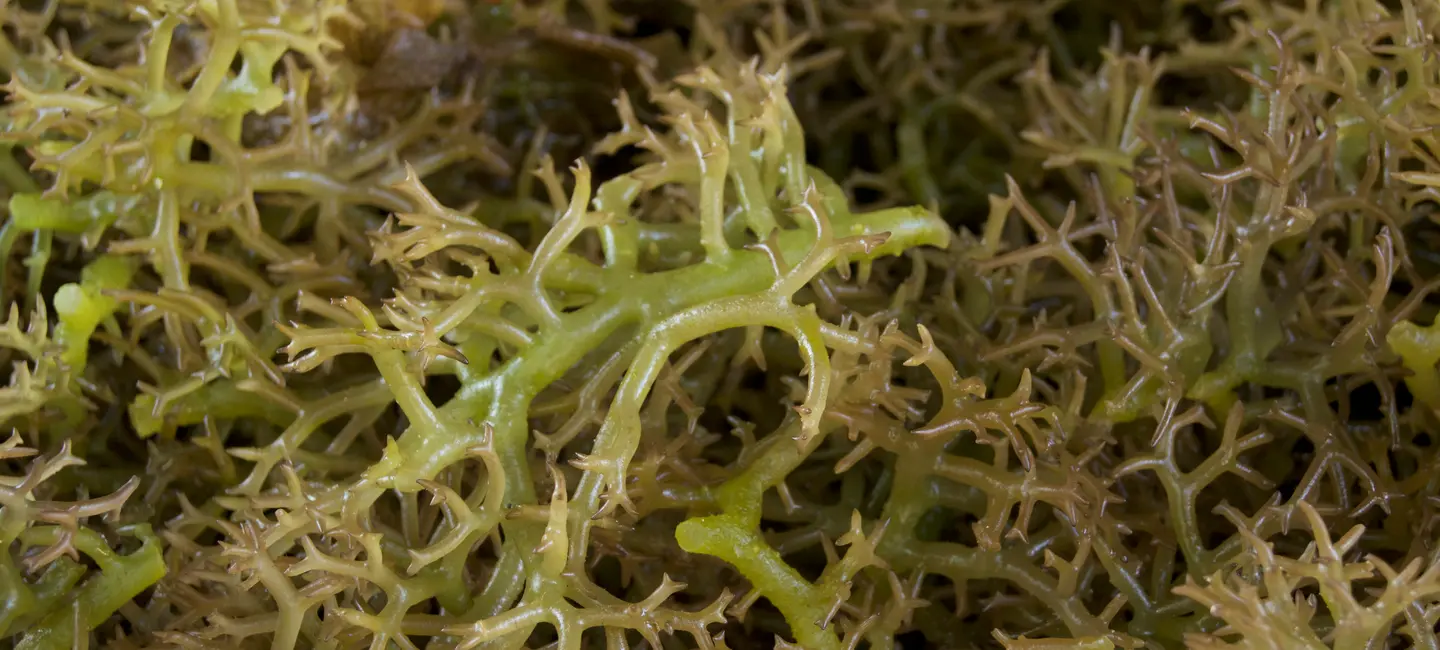
Carrageenan is made from parts of various red seaweeds in the Rhodophyceae family. It's commonly used to thicken foods, but it has no nutritional value.
Carrageenan has been added to processed foods since the 1950s. Carrageenan might also help fight infections.
People use carrageenan for cough, common cold, and other conditions, but there is no good scientific evidence to support any uses.
Is It Effective?
NatMed Pro rates effectiveness based on scientific evidence according to the following scale: Effective, Likely Effective, Possibly Effective, Possibly Ineffective, Likely Ineffective, Ineffective, and Insufficient Evidence to Rate.
- A sexually transmitted infection that can lead to genital warts or cancer (human papillomavirus or HPV). Applying a carrageen gel before intercourse does not reduce the risk of anal HPV in males who have sex with males.
There is interest in using carrageen for a number of other purposes, but there isn't enough reliable information to say whether it might be helpful.
Is it Safe?
When taken by mouth: Carrageenan is commonly consumed in foods. A broken down form called poligeenan is possibly unsafe. It might damage the colon and cause bleeding and cancer. But this risk hasn't been shown in humans. Also, carrageenan products found in the US and Europe can only contain a very small amount of this broken down form.
When sprayed into the nose: Carrageenan is possibly safe for most people when used for up to 7 days.
When applied to the skin: There isn't enough reliable information to know if carrageenan is safe. It might cause side effects such as discomfort.
Special Precautions & Warnings:
Pregnancy and breast-feeding: Carrageenan is commonly consumed in foods. There isn't enough reliable information to know if it's safe in the larger amounts used as medicine. Stay on the safe side and stick to food amounts.
Bleeding disorders: Carrageenan might slow blood clotting and increase bleeding. Carrageenan might make bleeding disorders worse.
Surgery: Carrageenan might slow blood clotting in some people. Carrageenan might increase the risk for bleeding and interfere with blood pressure control during surgical procedures. Stop using carrageenan at least 2 weeks before a scheduled surgery.
Ulcerative colitis: Carrageenan might increase the risk of relapse in people with ulcerative colitis who are in remission and are on a carrageenan-free diet.
Medications that slow blood clotting (Anticoagulant / Antiplatelet drugs)
Interaction Rating=Moderate Be cautious with this combination.
Carrageenan might slow blood clotting. Taking carrageenan along with medications that also slow blood clotting might increase the risk of bruising and bleeding.
Herbs and supplements that might slow blood clotting: Carrageenan might slow blood clotting and increase the risk of bleeding. Taking it with other supplements with similar effects might increase the risk of bleeding in some people. Examples of supplements with this effect include garlic, ginger, ginkgo, nattokinase, and Panax ginseng.
There are no known interactions with foods.
Carrageenan is commonly added to processed foods.
As medicine, there isn't enough reliable information to know what an appropriate dose of carrageenan might be. Keep in mind that natural products are not always necessarily safe and dosages can be important. Be sure to follow relevant directions on product labels and consult a healthcare professional before using.
Algas, Algue Rouge Marine, Carageenan Gum, Carastay, Carrageen, Carrageenin, Carragenano, Carragenina, Carragheenan, Carraghénane, Carraghénine, Chondrus Extract, Danish Agar, Eucheuma Spinosum Gum, Extrait de Mousse d'Irlande, Galgarine, Iota-Carrageenan, Irish Moss Extract, Irish Moss Gelose, Kappa-Carrageenan, Lambda-Carrageenan, Marine Colloids, Mousse d'Irlande, Norsk Gelatin, PES, Processed Eucheuma Seaweed, Red Seaweed Extract, Vegetable Gelatin.
Information on this website is for informational use only and is not intended to replace professional medical advice, diagnosis, or treatment. While evidence-based, it is not guaranteed to be error-free and is not intended to meet any particular user’s needs or requirements or to cover all possible uses, safety concerns, interactions, outcomes, or adverse effects. Always check with your doctor or other medical professional before making healthcare decisions (including taking any medication) and do not delay or disregard seeking medical advice or treatment based on any information displayed on this website.
© TRC Healthcare 2024. All rights reserved. Use and/or distribution is permitted only pursuant to a valid license or other permission from TRC Healthcare.
